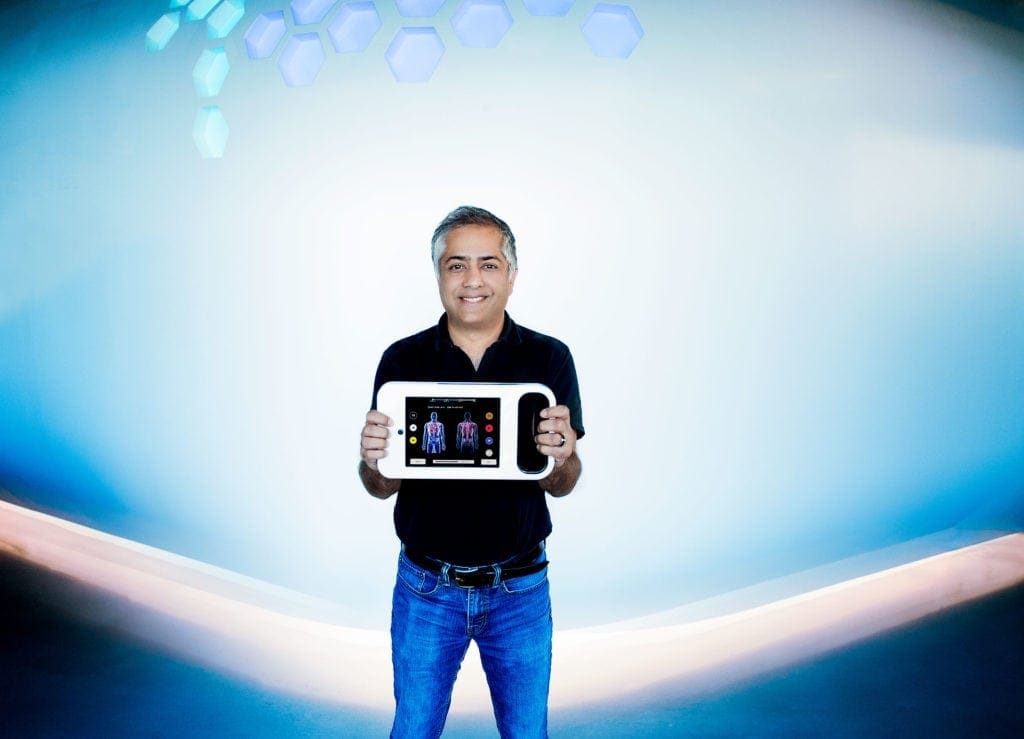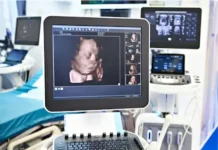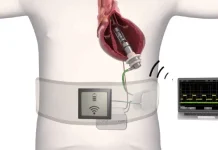Corvista Health Inc. has raised $65 million in a series C equity financing led by Ambix Life Science Fund I LP. The new funds are earmarked for ongoing research, product development and commercialization of the company’s noninvasive, point-of-care (POC) solution for rapid detection of heart disease.
Joining Ambix in the round were Medventure Partners and several new and existing investors. With this latest infusion, Corvista has raised a total of nearly $100 million.
An estimated 655,000 Americans die from heart disease year. According to the American Heart Association, the combined costs of medical care and lost productivity due to cardiovascular disease will hit $1.1 trillion per year by 2035, up from $555 billion in 2015.

How it works
The Corvista system relies on artificial intelligence and machine learning to predict the likelihood of cardiovascular disease, as opposed to more traditional tools such as radiation, contrast agents, fasting and cardiac stress tests. The hand-held device collects millions of data points on cardiac and hemodynamic systems, which are then analyzed by an FDA-cleared, machine learned algorithm to aid physicians in diagnosing and treating patients with suspected cardiac disease.
Testing is used while patients are at rest. Sensors are attached to their chest to capture cardiac measurements – signals naturally emitted by the heart – and the data is then relayed to a cloud-based, secure database. There, “complex mathematical manipulations are performed on patient data and proprietary machine-learned algorithms generate results on the presence of cardiovascular disease,” Don Crawford, Corvista’s CEO, told BioWorld.
“Within minutes of the test, the Corvista Analysis clinical summary is available in a secure web portal to aid physicians in rapidly diagnosing and determining personalized and appropriate treatment pathways for patients with suspected cardiovascular disease, answering important clinical questions to guide better treatment decisions,” he said.

Clinical evidence
To date, the Toronto-based digital health startup has studied more than 8,000 patients with the Corvista system. It currently has three ongoing clinical trials focused on coronary artery disease and pulmonary hypertension, in conjunction with Janssen Pharmaceutical Inc.
In March 2021, the company reported early data supporting use of the Corvista system in predicting elevated left ventricular end-diastolic pressure (LVEDP) and its potential to identify patients with elevated filling pressures at the POC. According to poster presentation at the American College of Cardiology 2020 virtual sessions, the machine learning approach was highly accurate for predicting LVEDP ≥20 mmHg. Among 890 patients, the algorithm had an average area under the curve of 0.97 for predicting LVEDP, with 94% sensitivity and 89% specificity.
In a study published in the April 2021 issue of Computer Methods and Programs in Biomedicine, Corvista’s algorithms demonstrated sensitivity and specificity of 0.88 and 0.71, respectively for predicting LVEDP in two age groups, 40-60 for sensitivity in diseased populations and 41-65 for specificity in healthy individuals.
“The results of this work show that sensitivity remains high and therefore diagnostically useful with acceptable specificities in each subgroup,” the authors wrote. “Clinically, a noninvasive test for CAD with the diagnostic properties demonstrated herein would provide a valuable alternative to other CAD testing modalities. Similarly, a noninvasive test for elevated LVEDP with these characteristics addresses a currently unmet need in the heart failure diagnostic pathway.”
No clear timeline
Crawford declined to give a timeline for FDA clearance and commercialization, citing uncertainties around the COVID-19 pandemic, but said the company is working hard to make its system available in the U.S. “We have a very collaborative and ongoing relationship with the agency,” he said.
Reflecting on the on the global health care crisis, Crawford underscored the need for more accessible diagnostic modalities. “There have been many lessons learned during the pandemic, and there is now more than ever a need to respond with new and more efficient solutions to aid our health care system. The Corvista system is ideal in that it is at point of care, reducing burden on staff, resources and the patient,” he said.
Additionally, doctors and scientists are learning that a portion of COVID-19 patients will develop chronic cardiac conditions. “The Corvista system could be helpful to physicians in diagnosing and managing their conditions,” Crawford said.
Founded in 2012 as Analytics 4 Life, the company rebranded as Corvista Health in December 2020. The company also hired Scott Burger, a veteran of Johnson & Johnson’s cardiovascular group and two software-based medical device startups, to lead its commercialization efforts. Analytics 4 Life continues to operate as its holding company.




